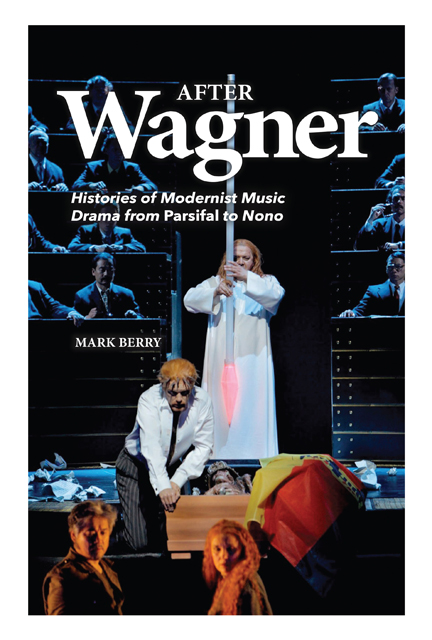Book contents
- Frontmatter
- Contents
- List of Music Examples
- Acknowledgements
- Dedication
- Introduction: ‘After Wagner’
- Part I In the Shadow of German Idealism: From Parsifal to Capriccio
- Part II Composition after the Second World War: From Germany to Italy, and Back Again?
- Part III Performance and the Fruitful Instability of the Work: From Parsifal to Nono
- Bibliography
- Index
3 - Richard Strauss: Paths to (and from) Capriccio
Published online by Cambridge University Press: 24 February 2023
- Frontmatter
- Contents
- List of Music Examples
- Acknowledgements
- Dedication
- Introduction: ‘After Wagner’
- Part I In the Shadow of German Idealism: From Parsifal to Capriccio
- Part II Composition after the Second World War: From Germany to Italy, and Back Again?
- Part III Performance and the Fruitful Instability of the Work: From Parsifal to Nono
- Bibliography
- Index
Summary
Richard Strauss may well be the most difficult ‘case’ in this book; indeed, there is perhaps no more difficult case in all opera. There are numerous ‘political’ ways in which his work may be considered. A strong argument exists for consideration of his oeuvre as a running commentary, perhaps disreputable, for some even repellent, upon the course of that German history in which it was written, created, and experienced. ‘Consumed’, one might be tempted to add, by way of Adornian reference to the Culture Industry. There is also good reason to consider the position of Strauss’s work with respect to the past glories of German culture, to which it might appear to mark if not a climax, then an ambivalently modernist/ anti-modernist coda, Schoenberg notwithstanding. Those wedded or at least disposed to organic models of cultural rise, climax, and decline will hardly fail to see the potential for decadence here. Should one not follow Nietzsche, employing the French word, décadence, for the Wilde opera, Salome, and for a good deal else besides? Is it a coincidence that, relatively early in his operatic career, he was drawn to the court of Herod Antipas? Does not Strauss in decadent and, some would say, uncomprehending, fashion, parody and perhaps even travesty Wagner there and in Elektra, Mozart in Der Rosenkavalier, and both in Die Frau ohne Schatten? Even longevity presents its own problems, especially when combined with the claim that Strauss turned his back on ‘modernism’ after Elektra. Indeed, it might seem perverse to have him follow rather than precede Schoenberg, who was influenced more by Strauss than he latterly wished, but since the history in this chapter finds its culmination in Capriccio and the Third Reich, that seemed more fitting: Aron ‘after’ Moses.
Moreover, even when biographical issues – as in Wagner’s case, both more complicated and more interesting than the tired formulations served up by their accusers – are put on one side, one often encounters a sense of moral outrage, or at least distaste, that a composer of such gifts is, for more or less reprehensible reasons, letting them go to waste, frittering them away, acting dishonestly. One senses a school-report-like suspicion that Strauss could easily have done so much ‘better’, ‘ease’ suggesting the composer’s dangerous facility: a Mendelssohn without Protestant probity.
- Type
- Chapter
- Information
- After WagnerHistories of Modernist Music Drama from Parsifal to Nono, pp. 99 - 122Publisher: Boydell & BrewerPrint publication year: 2014



